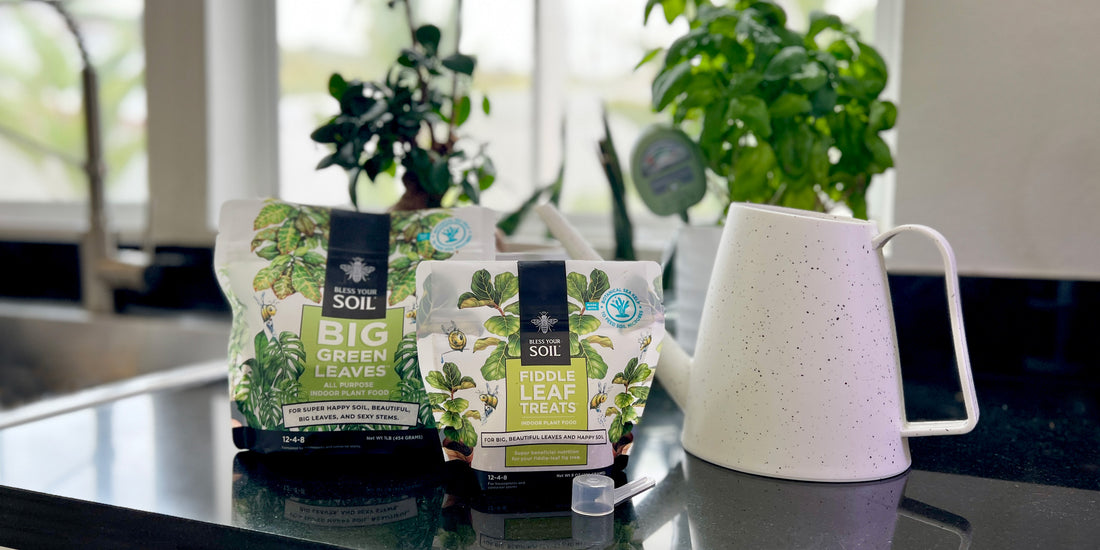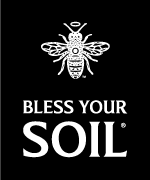
Welcome to the world of indoor gardening! As a plant enthusiast, you know that providing the best care for your houseplants involves more than just watering. Fertilizing your indoor plants is a crucial aspect of plant care that ensures they receive the essential nutrients they need to thrive.

In this Q&A article, we'll delve into the importance of fertilizing, understanding the nutrients your plants require, the different types of fertilizers available, and some helpful tips to keep in mind. Whether you're a seasoned plant parent or just starting out, get ready to learn how to nourish your leafy companions and help them flourish in their indoor environment!
Q: How often should I fertilize my houseplants?
A: Houseplants, as we all know, thrive on constant attention, and have different care requirements than outdoor plants! When it comes to container houseplants, they especially benefit from regular, gentle feeding each time they're watered. Unlike outdoor plants, container houseplants have unique needs and characteristics that require more consistent nutrition. So, if you want to keep your indoor green buddies happy and healthy, a gentle and instant feed plant food with each watering can do wonders! After all, who doesn't want to pamper their beloved houseplants with some extra TLC?
Q: What nutrients do houseplants need from fertilizers?
A: Houseplants are just like us, they need a balanced diet! All houseplants need the basic blend of nitrogen (N), phosphorus (P), and potassium (K), also known as NPK in a specific ratio, usually a 3:1:2 ratio plant food does the trick. Unfortunately, many products stop there and with that literal percentage (duh)! We recommend staying away from those low-end products as they won't do much to benefit your plants.
Further, plants also need a wide range of trace minerals to be actually healthy. At Bless Your Soil®, we go a few more steps to include organically-bonded trace minerals and organic materials that carry naturally occurring plant hormones and soil conditioners. We believe in giving your houseplants the VIP treatment they deserve.
Q: Can I use any type of fertilizer for my houseplants?
A: Yes and no! While you technically can use any fertilizer, using the wrong one can actually deplete your houseplants' soil in the long term. Additionally, keep in mind that your plants' soil has a microbiome that requires nutrition to stay healthy. You see, lower quality fertilizers can be a real downer, from low value for the cost all the way to dangerous toxicities with long-term use.
Q: Are tablets or soil spikes good for fertilizing houseplants?
A: Slow-release tablets or spikes are popular for their ease of use, but can also create imbalances in soil pH and nutrient distribution over time, causing potential toxicities for your plant. And, if you have any little hands or pets running around the house, these products introduce another risk for them.
Q: How do I know if my houseplants need fertilizer?
A: Ah, the signs of nutrient deficiencies! Your houseplants might start showing slow growth, or pushing out smaller leaves. But first, make sure your plant is getting adequate light, and isn't in the throws of bound roots or root rot—fertilizer doesn't solve all plant issues and can make a bad situation worse. So, if the soil and light conditions are good, don't worry, it's not you, it's the lack of proper nutrients!
Q: Should I use liquid or granular fertilizer for my houseplants?
A: Good question! While liquid fertilizers might seem like the trendy option, Granular or powdered fertilizers (water soluble) are the real MVPs! They have a longer shelf life, are less prone to degradation, contamination, and spoilage. Plus, they contain more nutrition since they are not pre-diluted with water like liquid fertilizers, which can contain up to 95% water. And hey, with granular fertilizers, you get more uses per container, making them a better value for your buck!
Q: Can I make my own homemade fertilizer for houseplants?
A: Yes, but if you want to be serious about growing big, beautiful, healthy plants, the way to go is to buy a professional formula. Fertilizer chemistry is complicated and requires certain ratios to be spot on to be most effective. There are other homemade fertilizers like compost tea or eggshell tea, but their nutrient content may not be well-balanced and consistent.
Q: Can I use banana peel compost tea to feed my houseplants?
A: While using homemade concoctions like rotted banana peel water may provide some potassium (and possibly attract gnats, yuck!), it's important to remember that houseplants require a balanced supply of various nutrients to thrive. While it may be tempting to try out DIY options, it's best to stick to a reliable plant food formula that provides a well-rounded nutrient profile to ensure your houseplants get all the essential elements they need for optimal growth and health. So, go ahead and experiment if you're curious, but for consistent and effective plant nutrition, it's wise to rely on a trusted plant food product.
Q: What are the different types of fertilizer formulations for houseplants?
A: Oh, there's a whole world of options out there! You've got water-soluble granules, powders, liquid concentrates, slow-release pellets or beads, and spikes. It's like a buffet for your houseplants! But remember, not all fertilizers are created equal, so choose wisely and go for the top-notch. When it comes to plant care, you can trust we've done the thinking for you. We want to make things as simple as possible to give you the confidence you needs to care for your leafy friends.
Fiddle Leaf Treats™ is made for the specific nutritional requirements of Fiddle Leaf Fig Trees and Ficus varieties.
Q: Are organic or synthetic fertilizers better for houseplants?
A: It's a bit of a debate! Both organic and synthetic fertilizers have their pros and cons. Organic fertilizers are like the gentle giants, providing slower growth and being more environmentally friendly. But synthetic fertilizers can offer quicker results. Both can offer benefits. While organic fertilizers are generally more gentle, they encourage slower growth and may have the potential to cause pathogens or imbalances in the soil, leading to pest and other issues. Typical synthetic fertilizers can offer less than complete nutrition and run the risk of creating a toxic soil environment over a longer period of time.
Bless Your Soil® combines the best of organic and synthetic materials, with the synthetic materials being organically-bonded. This prevents soil build-up and increases compatibility in a variety of environments.
They key to big, healthy leaves is the right fertilizer. Make sure your plant has access to adequate light and isn't suffering any soil or root issues prior to fertilizing.
Have more questions? Just ask us!






